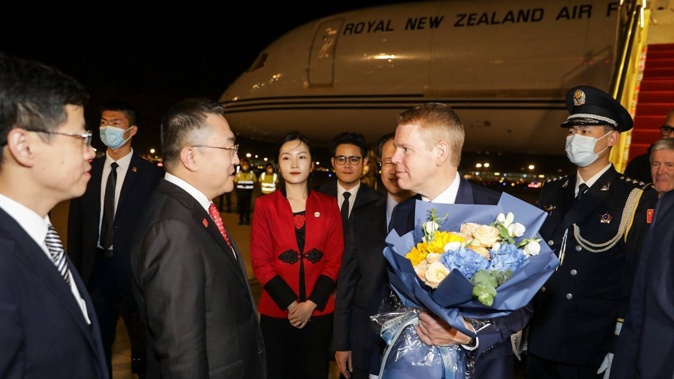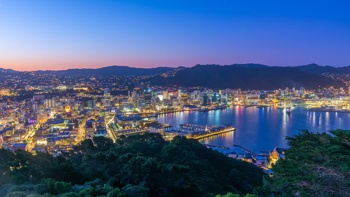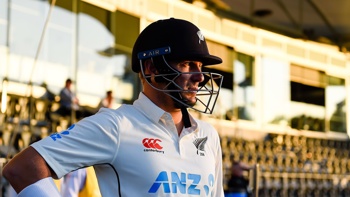
Prime Minister Chris Hipkins touched down in Beijing in the early hours of this morning, beginning a week-long tour of China.
Hipkins landed at about 2.30am New Zealand time and was met at the airport by New Zealand’s ambassador to Beijing Grahame Morton and a welcoming committee of Chinese soldiers and officials.
On the tarmac, Hipkins was met by China’s Vice Minister of Foreign Affairs Ma Zhaoxu.
He arrives in China at a pivotal point in the Russia-Ukraine war, in which Russian President Vladimir Putin saw his authority challenged by Yevgeny Prigozhin, the head of the Wagner mercenary group.
Prigozhin launched a brief mutiny, taking a Russian city before a truce was negotiated.
Kremlin watchers think the episode is evidence of fraying morale inside Russia.
Members of the New Zealand delegation were checking their phones at refuelling stops in Cairns and Manila to get the latest from Russia.
This is significant news for China, which, though it has not picked a side in the war, is often thought to be implicitly backing Russia by not taking a more forceful position on the conflict.
The war is almost certain to come up in Hipkins’ visit with Chinese President Xi Jinping on Tuesday evening, NZ time. The meeting with Xi will be the most significant diplomatic engagement of Hipkins’ tenure as prime minister thus far. It comes after reports in The Australian that Foreign Minister Nanaia Mahuta was given a dressing down by her counterpart when she visited Beijing earlier this year.
His first day is relatively light on the diplomatic side, with the focus around business events hosted by New Zealand’s embassy in Beijing.
On Tuesday morning, he will appear in a series of events hosted by the World Economic Forum in Tianjin before heading back to Beijing to meet the Chinese leadership in the Great Hall of the People.
Geopolitical turmoil is an unwelcome intervention on what is otherwise a strictly trade exercise.
/cloudfront-ap-southeast-2.images.arcpublishing.com/nzme/PSC2GHDBF5GVLJRA6IXLRBIMWQ.jpg) Chinese troops awaiting Chris Hipkins arrival. Photo / Nathan Mckinnon-Pool
Chinese troops awaiting Chris Hipkins arrival. Photo / Nathan Mckinnon-Pool
Ahead of the trip, Hipkins said trade was the bread and butter of how New Zealand made its way in the world.
“There’s not much more bread and butter than trade for a country like New Zealand, we are a trading nation,” Hipkins said.
“Trade is a centrepiece of the trip,” Hipkins said.
This will not stop Hipkins from speaking up about human rights. In 2021, the New Zealand Parliament voted unanimously to voice concerns at human rights abuses against the Uyghurs in Xinjiang.
Ahead of the trip, attention was focused on US President Joe Biden and his decision to label President Xi a dictator.
Hipkins said he would not use similar language himself.
“I generally don’t think those labels are useful,” he said.
/cloudfront-ap-southeast-2.images.arcpublishing.com/nzme/FSJUMNIRRRANZBM4Y3EOH25JEA.jpg) Two RNZAF aircraft in Manila. Photo / Thomas Coughlan
Two RNZAF aircraft in Manila. Photo / Thomas Coughlan
Hipkins deftly sidestepped the question multiple times. Asked to describe Xi, Hipkins said simply “I haven’t met him yet”.
This is Hipkins’ first meeting with Xi Former prime minister Jacinda Ardern last saw him at the APEC summit in 2022.
The last time a prime minister visited China was 2019.
Hipkins was taking no chances with this trip, which included one of the largest business and cultural delegations ever sent on an overseas mission.
Accompanying the main RNZAF plane to Cairns and Manila was a second RNZAF plane. This appeared to be back up in case the RNZAF plane suffered one of its frequent breakdowns.
Thomas Coughlan is Deputy Political Editor and covers politics from Parliament. He has worked for the Herald since 2021 and has worked in the press gallery since 2018.
Take your Radio, Podcasts and Music with you









